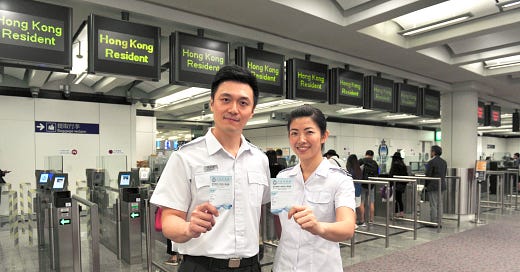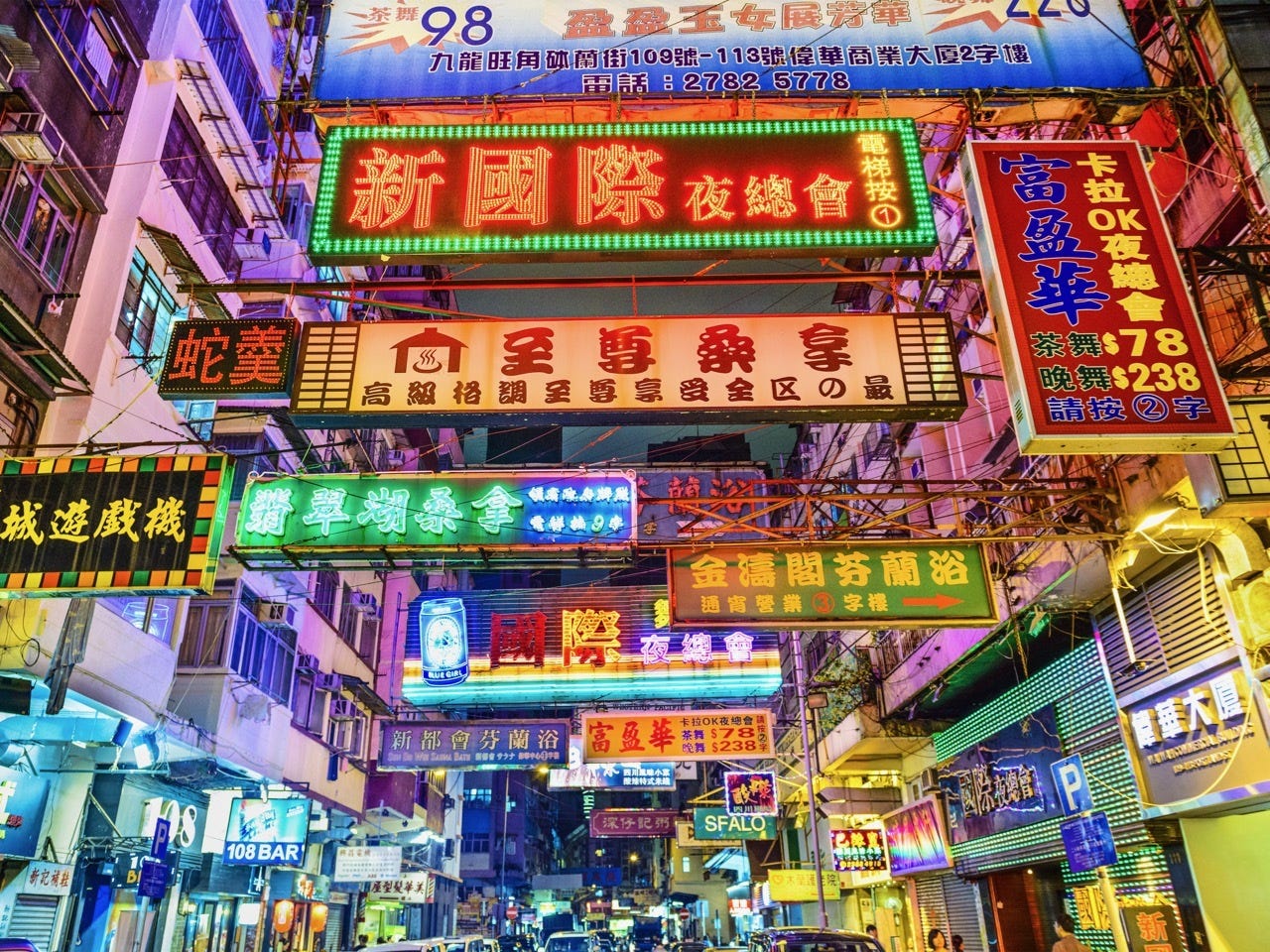So Long, Hong Kong?
With just two months to go before I lose my permanent residency, is it something still worth fighting for, or is it time to let go of a city that's changed beyond all recognition?
In two months, my Hong Kong permanent residency expires.
As an ethnic non-Chinese Hongkonger, I’m obliged to return every 36 months to keep my PR, as we call it. Now, this doesn’t really require much. In fact, as long as I just enter Hong Kong, my PR status is automatically renewed. This means, I can land, go through immigration, then immediately turn around and get on another plane. Of course, you’re not going to travel home without spending time there, so for me it’s always been an excuse to catch up with friends and see what’s new. Last time, we took the kids to Ocean Park on the MTR, which was a huge novelty for me (the train, not the park). However, this year there’s an imposing barrier that’s been placed in the way.
In their pursuit of a zero-Covid strategy, and determination to align the city with the mainland, the Hong Kong government has declared multi-week quarantine for anyone arriving - for most Hongkongers this means 21 days in a designated quarantine hotel (which you pay for out of your own pocket), and includes at least seven tests. It could be worse, you could end up in Penny’s Bay ‘Holiday Camp’ like author Stephen Vines, a collection of shipping containers ringed by a barbed wire fence and constant CCTV (though, to be fair, it’s worth reading this flip side from one of the camp’s volunteers).
It’s an all or nothing approach that separates Hong Kong, and mainland China, apart from most of the world (except perhaps the Hermit Kingdom of North Korea). Even Singapore, once Hong Kong’s fierce rival for Asian financial centre dominance, has eased back, realizing that there’s no way to keep out Covid forever, declaring a switch from treating it as a pandemic, to an endemic. This ‘we’re just going to have to live with it’ approach has been picked up and run with by my current abode, Cambodia.
Here, the government has done away with quarantine altogether, and just requires a negative PCR test 72 hours prior to landing, a rapid test on arrival, and you’re free to go (I should know, I recently did it). It’s an open approach that the authorities feel confident putting in place due to the vaccination rates, some of the highest in the world (see chart below - Cambodia has achieved a 85% vaccination rate, while Hong Kong has only got to 70%). Phnom Penh, the capital city, is now issuing fourth shots to residents, which means I’ve personally now had two Sinovac, an AstraZeneca and a Pfizer - all free of charge, and a tribute to the kingdom’s success in obtaining vaccines (mostly from China), and accepting free donations from countries around the world.
It’s also a major hope that this open approach will draw tourists back to the country, especially given the myriad confusing restrictions in the Southeast Asian nations around us (we’re looking at you Thailand, with your stop-start ‘Test & Go’ program and various ‘Sandboxes’). While the borders were closed, Cambodia invested heavily in sprucing up Siem Reap and Angkor Wat, fixing up roads, adding cycling lanes and repairing many ancient temples, making it an even better place to visit than before. They even released wildlife like gibbons, hornbills and otters, making Angkor not just a World Heritage Site, but also an animal sanctuary, a move that should be lauded.
Meanwhile in Hong Kong, residents and expats alike are leaving in droves, ‘Asia’s World City’ becoming nothing of the sort, as it closes itself off from the rest of the world. It makes me sad to see this once great metropolis, former gateway to China, turn its back on internationalism. It makes me even sadder to realize that I will soon likely lose my permanent residency. While I’ve gone back and forth over the merits of spending three weeks in a hotel cell to retain it, I’ve come to the decision that I just can’t justify it. And even if I could, is Hong Kong a place I still want to live anymore?
But there remains a light. In researching what I could do to retain my PR, I discovered that non-Chinese residents absent from Hong Kong for over three years don’t actually lose all rights. Instead, we are downgraded: ‘A person who ceases to have the status of a permanent resident of the HKSAR will automatically acquire the Right to Land in Hong Kong in accordance with the law.’ Importantly, it goes on to say that: ‘He/She will be able to enter Hong Kong freely to live, study or work without restriction.’
So while I won’t be able to vote or stand for election (for what either of those is worth anymore), alongside a few other privileges, I can still move home at any point in the rest of my life. It means that there’s still hope. I don’t need to give up on Hong Kong.
Not just yet.








“... still move home ...” says it all, Simon. What a bittersweet realisation for you. Blessings for your journey of letting go and accepting the changes.
Very interesting article /snapshot of changes within SE Asia Simon, the basket case that is currently Thailand, the hypothesised enlightenment of Cambodia (intriguing...) and the blinkered creeping paternal authoritarianism of China plus one little lost expat looking for an identity in a dystopic Asean. If they ever unite, maybe you will be proud to carry your Asean identity, a sense of belonging...and a passport. Or maybe a wrist / forehead barcode?